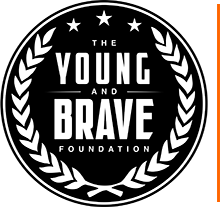Benefiting Individuals
Donors wishing to help the victims of a tragedy, a serious illness, or other major hardship are often surprised to learn that gifts earmarked for specific individuals are not tax deductible as charitable contributions. This rule catches many donors off guard as it is not intuitive that gifts made to individuals who are clearly in need would not be considered charitable. The rationale is as follows:
A. Charitable Class Requirement.
Code Sections 170(a) and (c) allow a tax deduction for contributions made “to or for the use of” qualified Code Section 501(c)(3) organizations. In contrast, contributions to specific individuals, no matter how deserving, are treated as private gifts and do not qualify as deductible contributions.
According to the Supreme Court: “Charity begins where the certainty in beneficiaries ends, for it is the uncertainty of the objects and not the mode of relieving them which forms the essential element of charity.” [1] In other words, there can be no charitable gift where the beneficiaries do not amount to a “charitable class.” Therefore, whenever the donor designates the beneficiary by name or limits the benefits to a small known group, the gift does not qualify as a charitable contribution for tax purposes. Further, such a gift may be subject to gift tax if the amount exceeds the annual gift tax exclusion.
B. Improper Earmarking.
Similarly, donors cannot indirectly obtain a deduction by designating a gift for a particular individual and passing the gift through a 501(c)(3) organization. This practice is known as “earmarking.” Earmarking may result from any oral or written understanding that the charity will use the contributed property for a specific donor designated individual. That is, a donation is not considered a contribution to charity if the facts show that the charity is merely a conduit for a gift to a specific individual.
The IRS uses two tests to determine whether a contribution is improperly earmarked:
- Discretion and Control. If the donee organization does not have discretion and control over the contribution? If not, then there is a strong argument the funds are not deductible as charitable contributions. Alternatively, if the donee has the option to apply the donated funds to purposes other than those preferred by the donor, then this supports the deductibility of the contribution.
- Donor Intent. Is the donor’s intent to benefit the charitable organization or a designated individual? If the facts indicate the donor intends to benefit the organization, this supports the deductibility of the gift. Obviously, committing the terms of the gift to writing provides strong evidence of donor’s intent. Also, the IRS may review the donee organization’s fundraising literature as well as the donor’s gift receipt to determine whether the donation is improperly earmarked.
It is important to note that general use restrictions, such as a restriction to use funds for nursing scholarships or a building fund, are acceptable are not considered improper earmarks.
To ensure deductibility, the IRS has suggested adding the following language to fundraising materials, gift agreements, and the donor’s gift acknowledgment:
“This contribution is made with the understanding that the donee organization has complete control and administration over the use of the donated funds.”
C. Conclusion.
In sum, contributions earmarked by a donor for a particular individual are treated as gifts to the designated individual and are not deductible. However, the IRS will allow a deduction if it the donor establishes that their intent in making the gift was to benefit the charitable organization. The test is whether the organization has full control of the donated funds, and discretion as to their use, to ensure that they will be used to carry out the charitable organization’s functions and purposes.
Read more:
http://charitylawyerblog.com/2015/07/02/benefiting-individuals/#ixzz5dqbYE93p
Content Provided By:
Ellis Carter is a nonprofit lawyer with Caritas Law Group, PC. To contact Ellis, call 602-456-0071 or email us at info@caritaslawgroup.com.
You should also be sure that you do not suggest that someone who gives money to your organization in order to help a specific family is able to claim a charitable contribution deduction for the donation.
A gift to, or earmarked for, the benefit of a specific individual or family is not deductible by an individual because individuals cannot claim a charitable contribution deduction unless they give to a qualifying entity. Even if a donor contributes to a charity’s fundraiser, if the fundraiser is for the benefit of a specific family, the donor is considered to have made the gift directly to the family because it is earmarked for the family.


